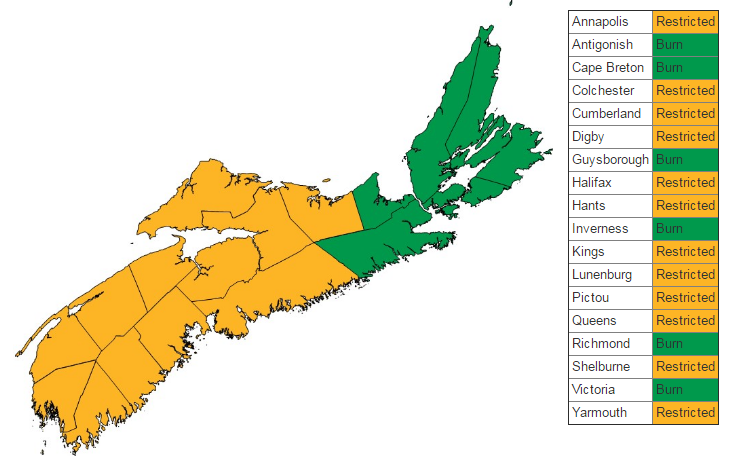Understanding the Burn Ban in Nova Scotia

Introduction
The recent burn ban implemented across Nova Scotia has garnered significant attention from residents and environmentalists alike. As the province faces heightened wildfire risks, understanding the implications of this burn ban is essential for public safety and environmental protection.
Reasons for the Burn Ban
The Nova Scotia government announced the burn ban in response to unusually dry weather conditions and increasing temperatures, which have raised concerns about potential wildfires. The ban, which restricts outdoor burning activities, aims to minimize fire hazards during peak risk periods.
According to the Department of Natural Resources and Renewables, parts of Nova Scotia have recorded below-average rainfall, with many areas experiencing prolonged drought conditions. These environmental factors, combined with gusty winds, contribute to the rapid spread of wildfires, making a burn ban a necessary precaution.
Details of the Ban
The burn ban affects all open fires, including campfires, agricultural burning, and backyard fire pits. Residents are urged to refrain from any outdoor burning activities until the ban is lifted. The government emphasizes that violating the ban can lead to significant fines and penalties.
In addition to prohibiting open flames, the ban also emphasizes the need for community preparedness. The provincial government has encouraged residents to familiarize themselves with fire safety practices and to report any suspicious fires or smoke to local authorities.
Community Response and Compliance
The response from the communities in Nova Scotia has largely been cooperative, with many residents acknowledging the importance of the ban in protecting natural habitats and human life. Local fire departments have increased their patrols and public education efforts to ensure compliance.
In an effort to support affected businesses, such as campgrounds and outdoor recreation providers, the government has provided guidelines about safe practices that can still be pursued within the limitations of the ban.
Conclusion
The burn ban in Nova Scotia is a critical response to current environmental conditions and emphasizes the need for public safety and fire prevention. As the province continues to face challenges related to climate change and wildfires, the implementation of such measures will likely remain a vital tool for managing wildfire risks. Residents are encouraged to stay informed about updates regarding the burn ban and participate in community efforts to promote fire safety.









